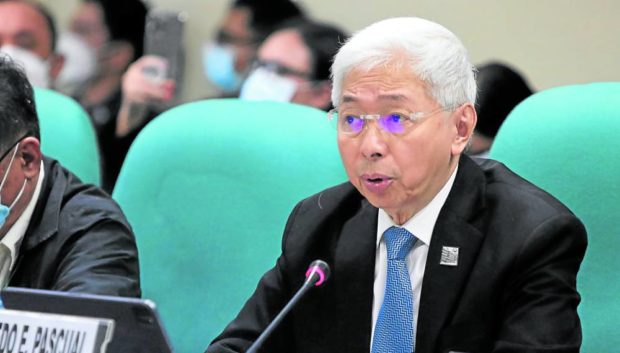MANILA, Philippines —The government is planning to double the number of Sharia-compliant goods being produced in the country within the next five years, as part of its efforts to develop the industry under a newly launched national strategy for the halal industry.
Trade Secretary Alfredo E. Pascual on Tuesday said the Philippine Halal Industry Development Strategic Plan 2024-2028 will double the current lineup of 3,000 certified products and services to 6,000, to cater to demand in both the domestic and global markets.
“To achieve this, we will foster collaborative efforts among government agencies, attract P230 billion in foreign investments, and, in the process, generate 120,000 new jobs over four years,” Pascual said at the launch event held at World Trade Center in Pasay City.
READ: Gov’t readies halal industry dev’t strategy
Pascual said that, in the Philippines, there is a relatively low number of halal-certified goods, services and companies despite the country having the third largest Muslim population in Southeast Asia.
The trade chief said that in 2023, the Philippines imported $120 million worth of halal products considering that there is a huge domestic demand to be filled.
To spur the local halal industry’s development within the five-year period, he said that the government’s approach is to invite global participation in the development of the local industry.
Pascual also highlighted the potential of the halal industry, citing the huge Muslim population across the globe at approximately 1.9 billion—or a quarter of the global population—that is projected to grow to 2.8 billion by the year 2050.
Halal market growth
“In line with this demographic trend, the halal market is poised for remarkable growth, expected to reach a staggering $7.7 trillion by 2025,” Pascual added.
Further, the trade chief said that a halal task force, which was formed recently, has already had several key accomplishments completed in just four months.
READ: PH halal industry targeting 10% export growth
These include the introduction of P300 million in investments from The Netherlands into businesses registered with the Philippine Economic Zone Authority and the Board of Investments.
The task force is also busy with the ongoing halal certification of micro, small, and medium enterprises (MSMEs) in partnership with the Bangsamoro Autonomous Region in Mindanao’s Ministry of Trade.
Pascual also cited the task force’s active role in the agreement that was signed between the Department of Trade and Industry and the financing firm DK P.O. Fulfillment Company Inc. to provide non interest funding to MSMEs. INQ


